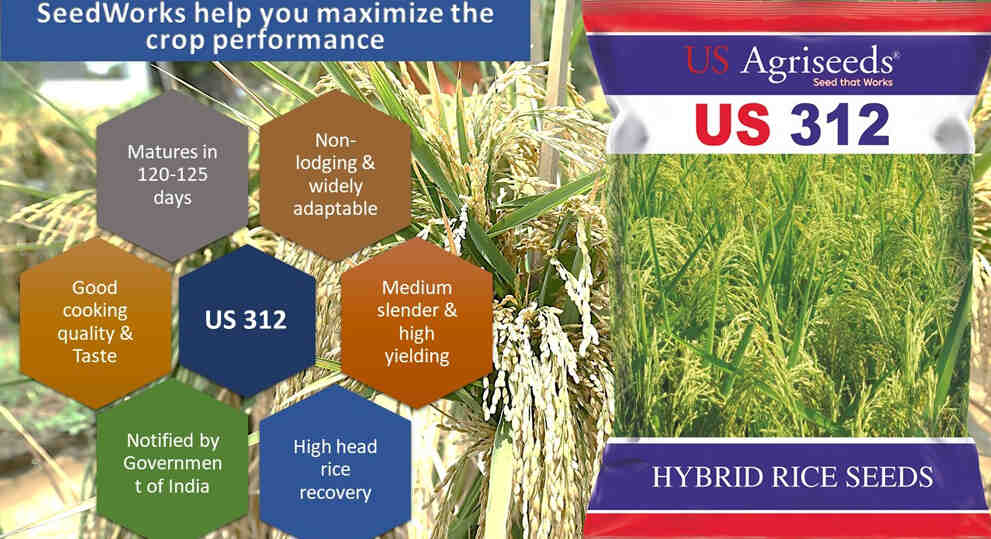Hybrid rice seed companies in India are playing a crucial role in shaping the future of rice farming. Rice is a staple food for millions of people, and with the growing demand for increased productivity, R&D (Research and Development) has emerged as the backbone of hybrid rice seed companies. Through continuous innovation and scientific advancements, these companies are helping farmers achieve higher yields and improved quality while addressing the challenges posed by climate change and land degradation.
In this blog, we will explore the significant role of R&D in hybrid rice seed companies, focusing on its impact on rice production in India.
The Growing Need for Hybrid Rice in India
India is the world’s second-largest producer of rice, with millions of farmers relying on rice cultivation for their livelihoods. However, with shrinking arable land, declining water resources, and the effects of climate change, achieving higher rice productivity has become increasingly difficult. This is where hybrid rice comes into play. Hybrid rice varieties, created by crossbreeding different rice species, can provide higher yields, better disease resistance, and improved drought tolerance, making them ideal for farmers in India.
The Role of R&D in Developing Hybrid Rice Varieties
Research and Development in hybrid rice seed companies is pivotal in developing new and improved rice varieties. Hybrid rice seeds are created by cross-pollinating two genetically distinct parent rice plants. R&D allows companies to identify and breed rice strains with desirable traits such as higher yield potential, resistance to pests and diseases, and adaptability to various environmental conditions. By investing heavily in R&D, hybrid rice seed companies in India ensure that the rice varieties produced are best suited to the specific needs of Indian farmers.
Improved Yield Potential through R&D
One of the most significant contributions of R&D to hybrid rice seed companies is the ability to increase yield potential. Researchers continually test different rice lines to identify those that will provide superior yields under various environmental conditions. In India, where land is limited, and agricultural resources are stretched, the increased productivity from hybrid rice is vital. Higher yields ensure that farmers can meet the growing demand for rice while maintaining profitability.
Pest and Disease Resistance in Hybrid Rice
In addition to higher yields, hybrid rice varieties developed through R&D are often more resistant to pests and diseases. Rice is susceptible to a variety of threats such as blast disease, bacterial blight, and various insect pests. Hybrid rice seed companies in India focus on breeding varieties that can withstand these challenges, ensuring better protection for crops and minimizing the need for pesticides. This not only helps farmers reduce costs but also promotes more sustainable farming practices.
Drought and Stress Tolerance in Hybrid Rice
Water scarcity is a significant issue in many parts of India, and drought can severely affect rice yields. To tackle this issue, R&D in hybrid rice seed companies focuses on developing varieties that can withstand drought and other environmental stresses. These drought-tolerant varieties require less water, making them an excellent choice for farmers in regions with unreliable rainfall or limited access to irrigation. The ability to grow rice with reduced water input is critical for the future sustainability of rice farming in India.
Enhancing Quality through R&D
While yield is a critical factor, the quality of the rice is just as important for both farmers and consumers. Hybrid rice seed companies are investing in R&D to improve the quality of rice varieties, making them more nutritious and visually appealing. Improved rice quality includes better grain size, texture, and taste, as well as increased nutritional value, such as higher protein content. R&D-driven innovations help meet consumer preferences while offering farmers access to higher-value crops.
Climate-Resilient Rice Varieties
With the increasing unpredictability of weather patterns due to climate change, hybrid rice seed companies in India are working to create climate-resilient rice varieties. These varieties are better equipped to handle extreme weather conditions, such as flooding, drought, and temperature fluctuations. R&D plays a key role in identifying rice strains that can adapt to changing climates, ensuring that Indian farmers can continue to produce rice despite unpredictable environmental factors.
Expanding Market Reach through R&D
As hybrid rice varieties are developed to meet the diverse needs of Indian farmers, hybrid rice seed companies are also looking to expand their market reach. R&D enables companies to develop a wide range of rice varieties that cater to different agro-climatic zones in India. From the humid regions of the northeast to the dry, irrigated plains of the north, R&D-driven hybrid rice seed companies can provide varieties that thrive in various soil and climate conditions, broadening the scope for adoption.
Collaborations and Partnerships for Advanced Research
Research and Development in hybrid rice seed companies is not just an in-house process; many companies collaborate with universities, research institutions, and government organizations to advance hybrid rice technology. These partnerships bring together experts from various fields, enabling companies to access cutting-edge research and technologies. Collaborations also help hybrid rice seed companies stay updated with the latest global trends and best practices in rice breeding, further driving innovation and success.
Conclusion: The Future of Hybrid Rice and the Role of R&D
In conclusion, the role of research and development in hybrid rice seed companies is vital for ensuring the continued success and sustainability of rice farming in India. Through continuous innovation, these companies are creating high-yielding, pest-resistant, drought-tolerant, and high-quality rice varieties that are perfectly suited to the challenges faced by Indian farmers. As the agricultural landscape continues to evolve, R&D will remain a cornerstone in the development of hybrid rice varieties that help secure food security for future generations. By focusing on research-driven solutions, hybrid rice seed companies are contributing to a more productive, sustainable, and resilient future for Indian agriculture.






Comments